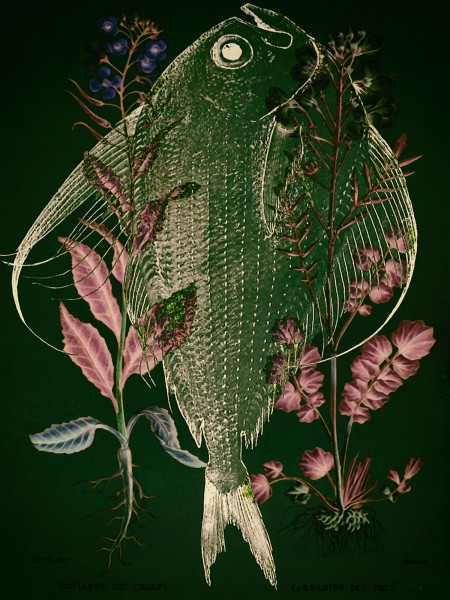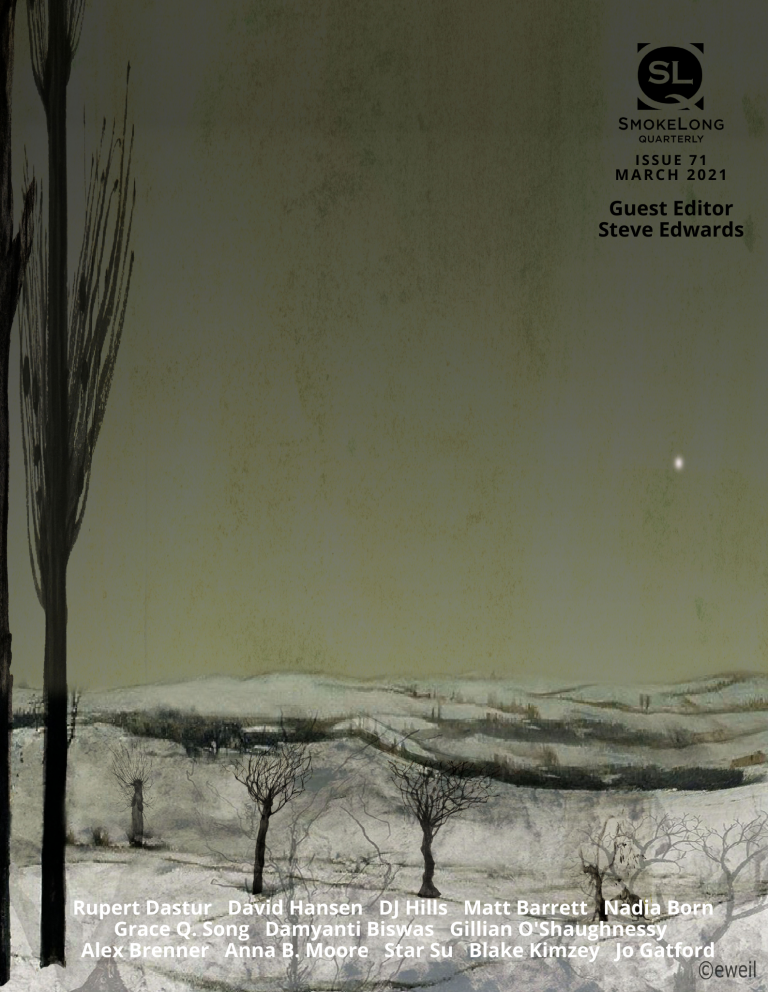My mother-in-law cooked pomfret fish in mustard sauce each Sunday.
That’s the way it had been in their family back in the remote village, she explained the first time I met her. Fish was the only delicacy they could afford. Cabbages on Monday, pumpkin on Tuesday, cauliflowers on Wednesday. I can’t remember the rest. She’d written down the recipes in a notebook. Tripta’s Treasure, it said in her running script, the only thing in the home that bore her name. Can’t find it now.
I try to recall the recipe for pomfret cooked in mustard, the shorshe jhaal, the white flesh cooked just right, not too flaky, easily peeled off the bone. The sauce not pungent, not bitter, not salty, but with hints of each. I don’t like fish, especially not fish cooked whole, the button-like eye finding mine. Mournful, accusing.
Ten dead pomfret eyes stare at me in the sink in my mother-in-law’s kitchen. I’ve never washed fish. Cold scales make me recoil.
Pomfrets have no scales, she’d said once, see how smooth? What about the fish eyes, I said, and she laughed, I’ll pluck them out for you, and did just that. I flinched. Later, she filled the empty fish eyes with sauce and when serving it on my plate said, look, no eyes. I’d watched her so many times, Sunday after Sunday, special occasions, birthdays.
I can wash and prep ten dead fish. I pick up the first, making the cut in its belly, holding my breath as I tug out its entrails and gills, squishy-ruby-red. That’s how you can tell they’re fresh. I drop the warm mess in the bin, and wash my hands in running water. Each step comes back to me, as if she’s still around. She might walk in any moment and whisper, I boiled this last night, here, since I made it in your name, you must taste some before everyone, and hold a spoon of payesh to my lips, fragrant with cardamom, each rice caramelised in cream. It takes hours of stirring to make good payesh. I’ve never made that, either.
She ate after she’d fed everyone. She’d grow upset when I forced her to sit and eat with us, or waited up with her so she wouldn’t eat at the counter, alone. My husband had his office, she explained, my children, their school and sport. This, she waved her hand around her dark kitchen, is all I know. The kitchen’s only window overlooked the high boundary wall, a few stringy half-dead creepers dangling from it.
While the pomfret marinates in turmeric and salt, I use her old mortar and pestle to grind the paste: cumin, mustard, a green chili. It must be smooth, no lumps. Lightly fry the fish, be careful with the skin. Don’t fry the paste, pour in boiling water or it will all turn bitter. Add mustard oil. The smoke will make your eyes water. That’s normal. Immediately add the fish.
In a few hours, the plate laden with all my mother-in-law’s favourite dishes will be offered at the shraddha, the final ceremony. The departed return for their last meal today, the priest walks into the kitchen and warns me as I cook. Make sure her soul is tripta, he says. It occurs to me what her name means: satiated, pleased. During the prayers, her name will ring through the home. She was always the mother (Ma, I called her). Or the elder sister (didi), the aunt (kakima, jethima, mashima), the grandmother (dida, thakuma). When was the last time someone called her by her name?
I’m not allowed to taste the pomfret to check the salt, because no one can touch food today before she does. The fish bubble and steam in a wok larger than any I’ve ever cooked in, mustard smell of shorshe jhaal filling the air. I wait for her to tell me they’ll turn out all right.



 The core workshop of SmokeLong Fitness is all in writing, so you can take part from anywhere at anytime. We are excited about creating a supportive, consistent and structured environment for flash writers to work on their craft in a community. We are thrilled and proud to say that our workshop participants have won, placed, or been listed in every major flash competition. Community works.
The core workshop of SmokeLong Fitness is all in writing, so you can take part from anywhere at anytime. We are excited about creating a supportive, consistent and structured environment for flash writers to work on their craft in a community. We are thrilled and proud to say that our workshop participants have won, placed, or been listed in every major flash competition. Community works.